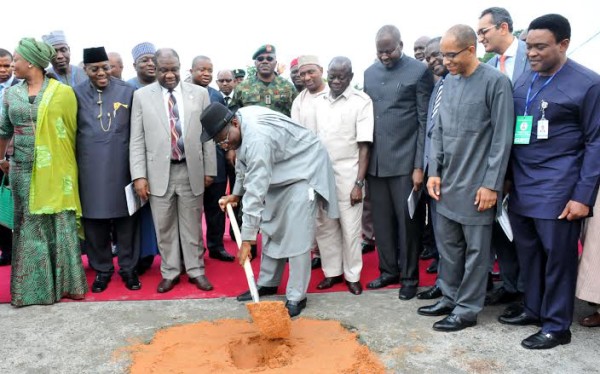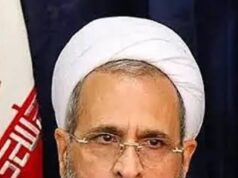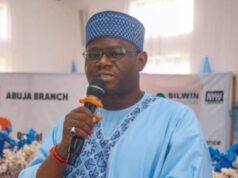
President Goodluck Jonathan has vowed that no amount of difficulty standing in his way would deter him from his government’s focus on fulfilling the transformation agenda. “You can be
assured that the federal government will remain focused on our transformation agenda regardless of the challenges we face. It is in the interest of our nation and our people that we make life better for all our citizens in the present and the generations to come.”
President Jonathan spoke today in Edo state when he flagged-off the Azura Edo Power Project which he said is a major milestone in his government’s power sector reforms programme.
He said that the project is a 450megawatts new generation capacity that had attracted almost one billion dollars, mainly in foreign direct investment.
“It is comprised of $700 Million in construction of the power plant and $300 Million in associated gas supply infrastructure.”
President Jonathan described the power project as a first in many ways, saying that it is the first fully financed private sector power plant to get to the final stage, under the new framework, facilitated by his government’s reform instituted agencies.
“It is the first power
generation project to receive the World Bank Partial Risk Guarantee and Multilateral Investment Guarantee Agency (MIGA) support. It is also the first signal from the global financial industry, which the federal government has dedicated to the reform of the power sector, in order to attract private sector developers and financing and it is finally yielding results.”
The President said that he has been greatly encouraged at the progress made so far, since he launched the Road Map on Power Sector Reform on August 26,2010.
“We sought to fulfil the intent of the Electric Power Sector Reform Act of 2005, which strives to liberalize the sector and bring in private sector ownership, management and financing to the industry. And we understood that electricity would be the catalyst for the growth of the economy, which would ultimately improve the lives of millions of Nigerians.”
Jonathan said that the Power Roadmap has set out the key foundational issues that needed to be addressed so as to remove the obstacles to private sector investment, thereby enabling sectoral growth.
The major objectives of the Roadmap, he recalled, were to: strengthen the industry regulator, the Nigerian Electricity Regulatory Commission (NERC); create a bulk trader as a credit-worthy buyer and reseller of electricity needed for investments in generation; conclude the privatization of the unbundled Power Holding Company of Nigeria (PHCN) successor generation and distribution companies, and resolve the associated labour issues; put in place a management contractor for the Transmission Company of Nigeria (TCN) and create the right environment for fuel-to-power investments.
“We also recognized that the fastest way to improve power supply, in the near term, was by completing the National Integrated Power Plant (NIPP) projects, which had been suspended for a number of years.
“Subsequently, we have addressed every one of those issues by: reconstituting and empowering an independent Nigerian Electricity Regulatory Commission; establishing the Nigerian Bulk Electricity Trading Plc (NBET) as “The Bulk Trader” and a credit worthy off-taker by capitalizing it to the tune of more than $800 million; concluding the privatization of the PHCN successor companies through a globally adjudged
transparent process, and settling all the labour liabilities; adjusting the framework for gas-to-power towards greater production and reduction in flaring.”
He recalled that in August this year, he commissioned the private sector-developed Uquo gas processing plant in Akwa Ibom which testifies to the progress that has been made in this direction.
“Finally, we have completed majority of the NIPP projects. Near here, in close proximity to the Azura power project, is the 508MW Ihobvor NIPP power generation plant, which has been generating power since last year.
“The Azura project, demonstrates without a doubt, that we have laid a strong foundation on which we are building a sound and sustainable electricity industry, with great expectations for robust growth in the sector.”
President Jonathan made it clear that his government is committed to irreversibly repositioning the Nigerian power sector as a pivot for the attainment of the nation’s developmental targets, stressing: “we are also maintaining our policy push for increased diversification of our energy, expanding investments in large hydro power projects through public-private partnerships, and the provision of necessary support to accelerate the exploitation of our coal resources.”
He reassured Nigerians that his government would continue to ensure that the growth of the electricity industry becomes self-sustaining and sustainable.
“My administration is fully committed to continuously improving the framework and enabling environment based on sound policy formulation, access to long-term low interest finance and transparent and consistent regulatory guidelines.
“However, such a framework can only be robust when the private sector works in partnership with the public sector.”
President Jonathan charged the project sponsors and their contractors to ensure that the estimated completion date of early 2017 for the project, is met.
This is even as he thanked the government and people of Edo State for fervently supporting this project and called on people in all the local communities around the country who are hosts to several federal, state and even private sector projects to cooperate to attain the necessary successes.
[myad]






